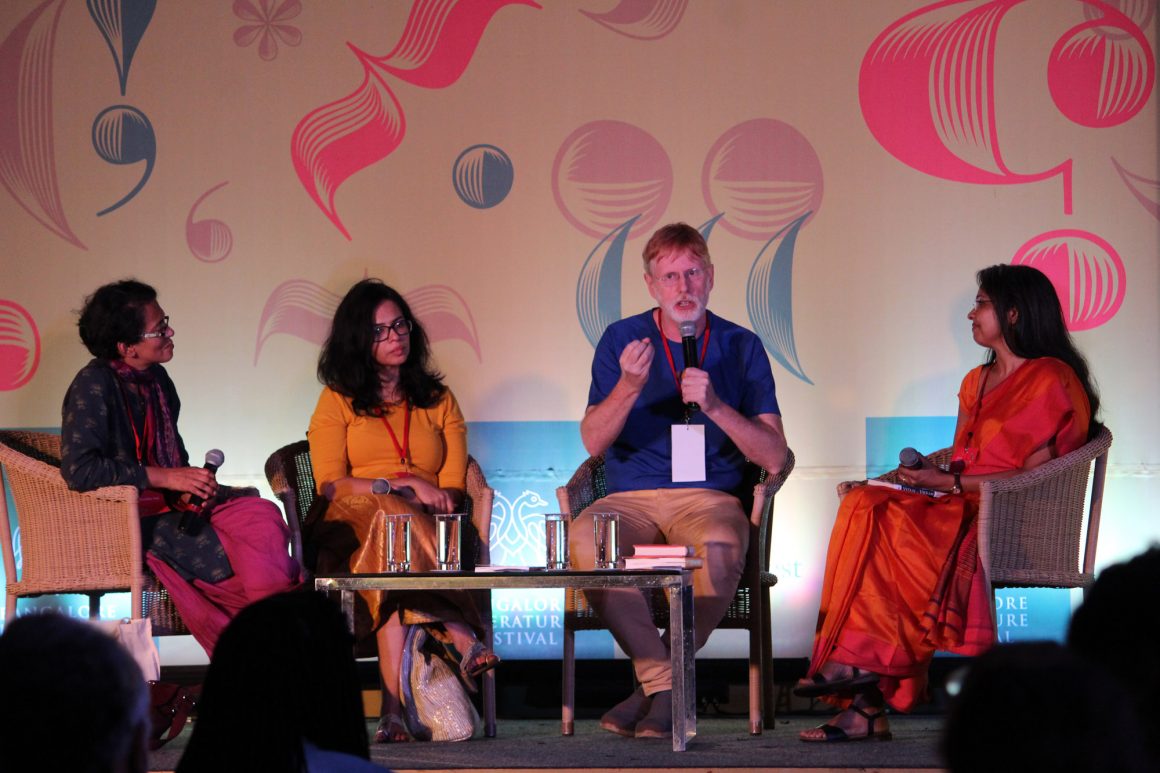Three potent female writers celebrated mythologies on the stage at the festival, talking about the narrativizing the retelling of a story. Karthika Nair and Samhita Padikkal both retold Mahabharata while Gayathri Prabhu chose the stories of Vikram and Vetal as her subject. The session was moderated by Jonathan Gil Harris. Their books challenge the belief that a story is worthwhile only if it is original. These three authors believed that retelling is an art as important as creating an original. Retelling helps in identifying identities and cultures for people over a period of time.
As we all know, oral literature was initially the medium of spreading and preserving literature. Samhita tells us her real life story and how she feels relatable to the characters of Mahabharata. She herself went through a dilemma of unacceptance and that is when she resorted to Mahabharata. Gayathri on the other hand chose a framed narrative. She explains to the audience, how a writer or author after making the text available for the audience has to leave it open in a space where they modify it according to their own understanding and each time a person tells a story to someone else, it is their version of it. She believes that the listener is a part of this act as much as the teller.
“Battle never looks the same, to various actors.” is the premise with which Karthika starts her book. She believes that in a book there are several voices which are in conversation with themselves and as we have several characters each of them would have a different perspective towards the narrated reality.
The intellectuals sketched a map that each retelling affirms that there is an origin, but does not mean the story when retold has any less significance than the original as our personal identities refute and communicate with the original text. Human beings have a great power to recall an incident from memory and recreate it for others through the medium of language; this itself is a function of language and thereby retelling is no less of an art than creating an original text.
About the Author: Aditi Dua is a Masters student in English with Communication Studies who has a knack for aesthetics and poetry. Apart from being a literature enthusiast, she highly celebrates challenging ideologies and provide disputing ideas of death. Always available for a conversation over good coffee. She currently writes for TheSeer.


